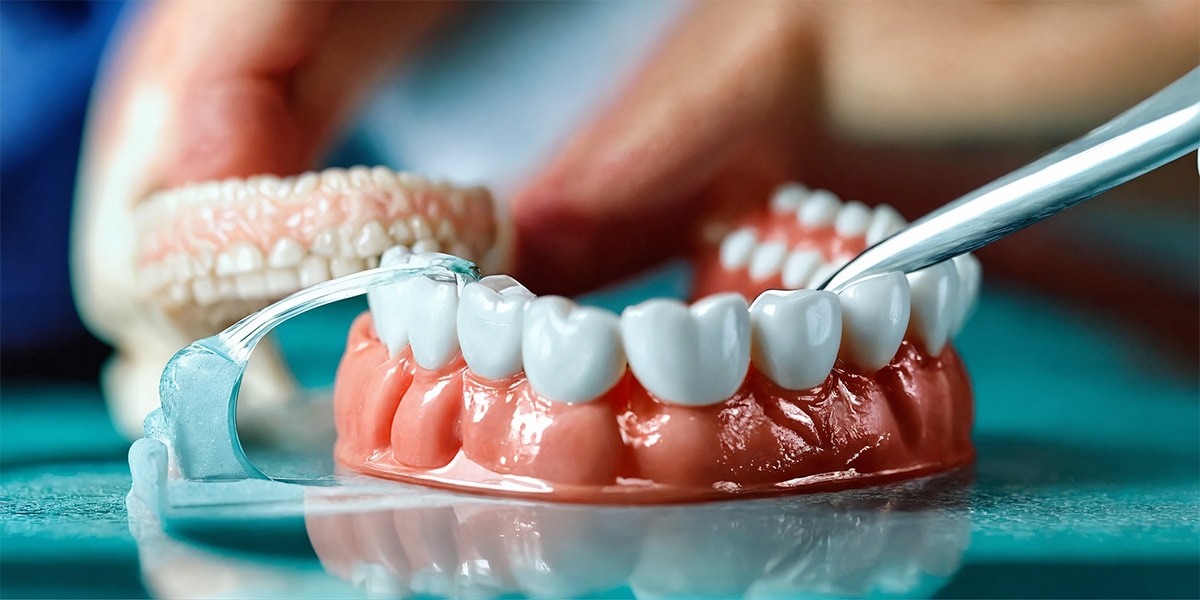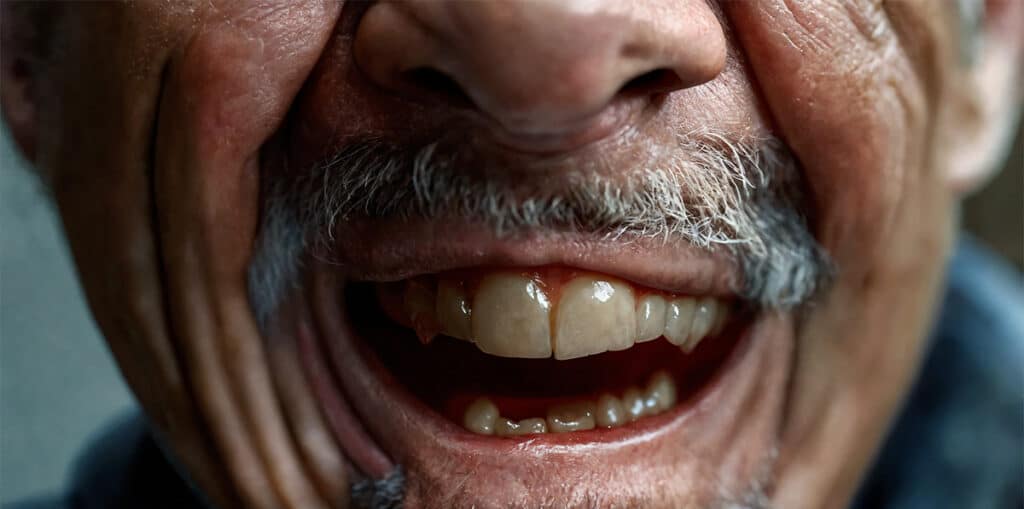Maintaining a radiant smile is not just about aesthetics; it’s crucial for overall health and confidence. While regular dental check-ups play a significant role, the foundation of dental health and brightness lies in daily care and adherence to best practices. This guide delves into essential habits and cutting-edge practices that promise a healthier, more vibrant smile.
The Importance of Daily Dental Hygiene
Consistent dental hygiene is the cornerstone of a bright smile. Brushing twice a day with fluoride toothpaste and flossing are non-negotiable habits. But beyond these basics, incorporating mouthwash can combat bacteria that brushing and flossing might miss, offering a triple-threat against plaque and decay.
Interesting facts:
- Brushing alone misses more than 50% of your mouth’s surfaces.
- Fluoride toothpaste can remineralize and strengthen tooth enamel.
- Electric toothbrushes can be more effective than manual brushing for some people.
Dietary Choices That Protect Your Smile
What you eat significantly impacts dental health. Sugary snacks and acidic beverages can erode enamel, while crunchy fruits and vegetables can help clean teeth naturally.
- Limit sugary and acidic foods to protect enamel.
- Cheese and dairy products can neutralize acids in the mouth.
- Drinking water throughout the day helps wash away food particles and bacteria.
Professional Dental Care: Not Just for Emergencies
Regular dental check-ups and cleanings are crucial for detecting early signs of dental issues and removing tartar that at-home cleaning can’t.
- Dentists recommend professional cleanings every 6 months.
- Sealants and fluoride treatments can offer additional protection against decay.
- Orthodontic treatments, like braces or aligners, can correct misalignments that contribute to plaque buildup.
Whitening: Achieving a Brighter Smile Safely
While whitening can significantly enhance your smile’s brightness, it’s vital to choose safe and effective methods.
- Over-the-counter whitening strips and gels can be effective but follow instructions carefully.
- Professional whitening treatments offer safer, more dramatic results.
- Natural whitening methods, such as baking soda, should be used cautiously to avoid enamel damage.
Ensuring a Luminous Smile Through Effective Denture Hygiene Practices
For those with dentures, maintaining hygiene is just as crucial for ensuring a bright smile.
- Clean dentures daily with a soft-bristled brush and denture cleaner.
- Soak dentures overnight in a cleansing solution to remove bacteria and stains.
- Regular dental visits are essential for denture adjustments and oral health checks.
Embracing New Technologies in Dental Care
“Embracing New Technologies in Dental Care” marks a transformative era in personal oral hygiene. The integration of advanced tools and devices into everyday routines has not only simplified dental care but also raised the standards for oral health. Among these innovations, electric toothbrushes with pressure sensors, water flossers, and UV sanitizers stand out for their ability to provide a comprehensive cleaning experience that rivals professional dental cleanings.
Electric Toothbrushes with Timers and Pressure Sensors
Electric toothbrushes have revolutionized the way we brush, offering a range of features designed to enhance cleaning effectiveness and prevent damage to our teeth and gums. Models equipped with timers help ensure that users brush for the dentist-recommended two minutes, promoting thorough plaque removal from all surfaces of the teeth. This simple feature aids in establishing consistent brushing habits, crucial for maintaining oral health.
Moreover, electric toothbrushes with built-in pressure sensors address a common issue many face: brushing too hard. Excessive pressure can lead to gum recession and wear down the enamel, the protective outer layer of the teeth. Pressure sensors alert users when they’re applying too much force, guiding them to adopt gentler, more effective brushing techniques. This feedback loop not only protects the gums and enamel but also maximizes the brush’s ability to remove plaque and food particles without causing damage.
Water Flossers: A Game-Changer for Interdental Cleaning
Water flossers have emerged as a powerful ally in interdental cleaning, particularly for individuals with braces, dental implants, or those who find traditional flossing challenging. By using a stream of pulsating water to remove food debris and plaque between teeth and below the gumline, water flossers reach areas that are difficult to clean with standard floss. For those with braces, water flossers effortlessly navigate around wires and brackets, ensuring that no area is left prone to plaque buildup. Similarly, individuals with dental implants benefit from the gentle yet effective cleaning that water flossers provide, safeguarding against peri-implant diseases.
UV Sanitizers: Ensuring Hygienic Tools
The importance of keeping dental tools clean cannot be overstated, and UV sanitizers offer a convenient solution. These devices use ultraviolet light to eliminate bacteria and viruses that accumulate on toothbrush bristles, a concern that has grown with the awareness of oral hygiene’s impact on overall health. UV sanitizers work quickly, often sanitizing brushes in just a few minutes, making them an easy addition to daily routines. By reducing the microbial load on toothbrushes, UV sanitizers help prevent the reintroduction of harmful bacteria into the mouth, contributing to a healthier oral environment.
The Impact of Technological Advancements in Dental Care
The adoption of these technologies into daily dental care practices marks a significant shift towards proactive oral hygiene. Electric toothbrushes with pressure sensors and timers, water flossers, and UV sanitizers each play a unique role in enhancing the effectiveness of routine cleanings, offering a level of precision and protection that was once only achievable in a dentist’s office. As these tools become more widespread, they promise not only to improve oral health outcomes but also to transform the act of dental care into a more efficient, enjoyable, and accessible experience. Embracing these innovations is a step forward in the journey towards optimal dental health and a brighter smile for everyone.
| Habit | Frequency | Benefits |
|---|---|---|
| Brushing with Fluoride Toothpaste | Twice daily | Removes plaque, reduces tooth decay |
| Flossing | Once daily | Removes plaque between teeth, prevents gum disease |
| Using Mouthwash | Once daily | Reduces bacteria, freshens breath |
| Visiting the Dentist | Every 6 months | Prevents dental issues, maintains overall oral health |
| Replacing Your Toothbrush | Every 3-4 months | Ensures effective cleaning, prevents bacteria buildup |
The Power of Prevention: Minimizing Risks to Your Dental Health
“The Power of Prevention: Minimizing Risks to Your Dental Health” underscores a fundamental truth in oral care: proactive measures can significantly reduce the risk of dental problems, ensuring a healthier future for your teeth and gums. This preventative approach focuses on understanding the behaviors and external factors that pose risks to dental health and taking concrete steps to mitigate them.
Smoking Cessation: A Critical Move for Oral Health
The impact of smoking on oral health is profound and multifaceted. Smoking not only stains teeth but also increases the risk of gum disease, oral cancer, and tooth loss. The toxins in tobacco smoke interfere with the normal function of gum tissue cells, impairing blood flow to the gums and affecting the attachment of bone and soft tissue to your teeth. Quitting smoking is, therefore, one of the most impactful steps you can take to protect your oral health. Smoking cessation not only halts the progression of dental damage but also improves response to dental treatments and speeds up healing processes.
The Importance of Protective Gear in Sports
Engaging in sports, especially contact sports, without proper protective gear can lead to dental injuries, including chipped or knocked-out teeth and jaw fractures. Mouthguards are an essential piece of equipment for anyone participating in activities that carry a risk of impact to the face. Custom-fitted mouthguards provided by dental professionals offer the best protection, comfort, and fit, significantly reducing the risk of sports-related dental injuries. By distributing the force of an impact more evenly, mouthguards help protect the teeth, gums, and jaw from severe harm.
Addressing Teeth Grinding: Preventing Long-Term Damage
Teeth grinding, or bruxism, often occurs unconsciously during sleep, though it can also happen during the day. Over time, this habit can lead to tooth wear, fractures, and jaw disorders such as temporomandibular joint (TMJ) dysfunction. Many individuals are unaware of their grinding until symptoms like jaw pain or tooth sensitivity become pronounced. Recognizing the signs early and seeking treatment is crucial for preventing long-term damage. Solutions include wearing a night guard to protect the teeth, stress reduction techniques, and, in some cases, addressing underlying bite misalignments or sleep disorders.
Embracing a Proactive Stance on Oral Health
Understanding and addressing these risk factors are key to maintaining strong, healthy teeth and gums. Each action, from quitting smoking to wearing a mouthguard and managing teeth grinding, contributes to a comprehensive strategy for minimizing risks to your dental health. This proactive stance empowers individuals to take control of their oral health, preventing many common dental problems before they start and ensuring a brighter, healthier smile for years to come.
The power of prevention lies in its ability to transform the way we think about and care for our oral health. By identifying and mitigating risks early, we can avoid the need for extensive dental treatments and enjoy the benefits of a healthy, vibrant smile.
Keeping Your Smile Bright with Proper Denture Hygiene: Your FAQs Answered
How often should I clean my dentures?
You should clean your dentures daily to remove food particles and prevent plaque buildup, which can lead to stains and oral health issues.
Can I use regular toothpaste to clean my dentures?
No, regular toothpaste can be abrasive for dentures. Use a cleaner specifically designed for dentures to avoid scratches where bacteria can grow..
Should I remove my dentures at night?
Yes, removing dentures at night allows your gums to rest and reduces the risk of bacterial infections, ensuring the health of your mouth’s tissues.
How do I store my dentures when I'm not wearing them?
Keep your dentures in water or a denture-cleaning solution when you’re not wearing them to prevent them from drying out and losing their shape.
Can dentures get stained?
Yes, dentures can get stained over time from certain foods, drinks, and tobacco use. Regular cleaning and annual check-ups can help manage and remove stains.
What should I do if my dentures start to feel uncomfortable?
If your dentures feel uncomfortable or loose, visit your dentist. They may need to be adjusted or replaced to fit properly again.
How can I prevent my dentures from breaking?
Handle your dentures with care during cleaning. Standing over a folded towel or a basin of water can prevent damage if you drop them.
Is it necessary to use a denture adhesive?
Some people find adhesives helpful for extra security. However, well-fitting dentures may not require adhesive. Consult your dentist for personalized advice.
How do I know if my dentures fit well?
Properly fitting dentures should feel comfortable and secure. Regular dental visits are essential to ensure a good fit as your mouth’s shape may change over time.
Can poor denture hygiene affect my overall health?
Yes, poor denture hygiene can lead to infections like stomatitis and can contribute to oral health issues, impacting your overall health and well-being.
Citations
- Almeida, P.D.V., Grégio, A.M.T., Machado, M.A.N., de Lima, A.A.S., Azevedo, L.R., “Saliva Composition and Functions: A Comprehensive Review,” Journal of Contemporary Dental Practice, vol. 10, no. 1, pp. 72-80, March 2008.
This review offers a thorough examination of saliva’s critical role in oral health, including its functions in maintaining oral hygiene, facilitating digestion, and protecting teeth and oral tissues. - van der Weijden, F.A., Slot, D.E., “Efficacy of Homecare Regimens for Mechanical Plaque Removal in Managing Gingivitis: A Meta Review,” Journal of Clinical Periodontology, vol. 42, Suppl 16, pp. S77-S91, April 2015.
A comprehensive meta-review assessing the effectiveness of various homecare routines for mechanical plaque removal in the management of gingivitis, offering evidence-based recommendations for dental hygiene practices. - Heasman, P.A., Hughes, F.J., “Drugs, Medications and Periodontal Disease,” British Dental Journal, vol. 217, no. 8, pp. 411-419, October 2014.
This article explores the complex interactions between medications and periodontal health, discussing how certain drugs can influence oral health outcomes and require adaptations in dental care regimens.








